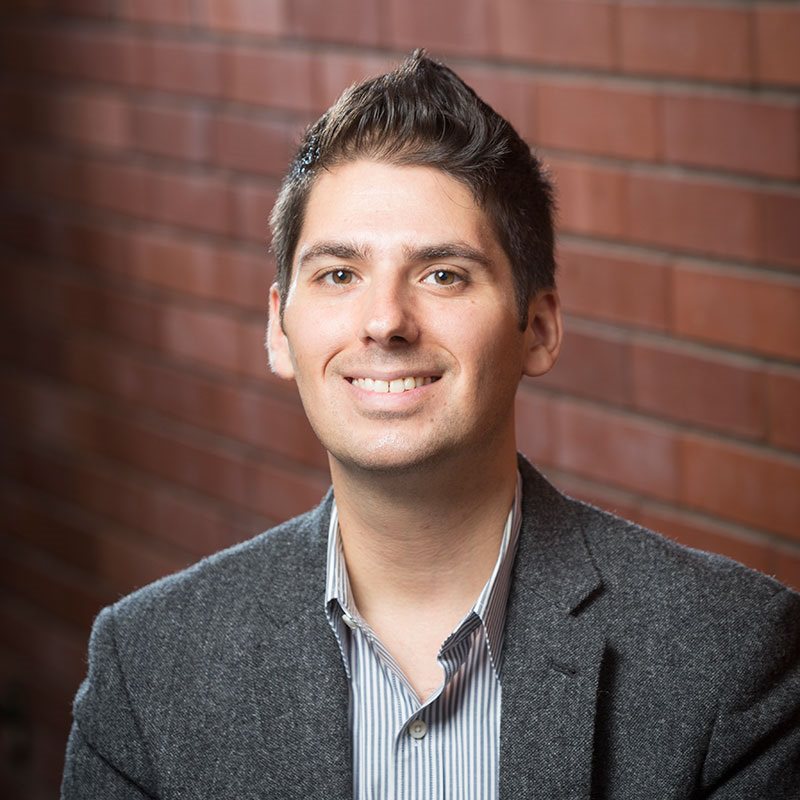Ghosts, Zombies, and the Unquiet Dead at Otterbein — OH MY!
Posted Oct 29, 2021
By Catie Duzzny ’21, MBA’23
A first-year student course called “Ghosts, Zombies, and the Unquiet Dead” taught by Assistant Professor Alex Rocklin connects global history to the ideas of spirits, ghosts, and zombies.

Rocklin is an assistant professor of philosophy and religion at Otterbein University. His research examines the politics of religion in the interactive making of Hinduism, Islam, and Afro-Atlantic religions in the colonial Caribbean.
A part of one of the courses Rocklin took as an undergraduate sparked the idea that a course on zombies, ghosts, and the unquiet dead could be interesting to teach at Otterbein.
“As an undergrad I had a class that touched on zombies. The term zombie comes from the Haitian Creole word ‘zonbi.’ It refers to a spirit, not in the way that we think about zombies today, as bodies without souls. Only with the United States occupation of Haiti from 1915 to 1934 does the idea of the zombie as revenant or walking corpse emerge,” Rocklin said.
“In our course we look at the cultural practices that surround this term. This leads to uncovering the diversity and complexity of the histories of slavery in the Caribbean that further point to African slaves and their descendants’ reimagining and adapting African traditions in the Americas. These histories point us to the effects of colonialism and imperialism on cultural practices in a significant way,” he added.
The course highlights why we tell ghost stories, tracking the complex relationships between stories of unquiet spirits, ghoulish transformations, the walking dead, and histories of slavery, colonization, and economic exploitation. This ultimately raises questions about the haunting effects of the past on the present.
The class focuses on Europe, the Middle East, United States, the Caribbean, and Southeast Asia, discussing them in their socio-political, cultural, and economic contexts. Throughout the semester the class will examine examples from stories, films, histories, ethnographies, instances of cultural rituals, stories of enslaved spirits, and dead bodies.
“I try to incorporate the U.S., particularly with film examples from George Romero’s work such as ‘Night of the Living Dead’ and ‘Dawn of the Dead.’ Other film examples include ‘The Mummy’ and ‘White Zombie,’ which is the first zombie movie ever and specifically focuses on Haiti, but is about Americans in Haiti,” said Rocklin.
Currently this class is looking at the ‘Night of the Living Dead’ (1968) film in relation to its social and political context, connecting the film to the Civil Rights movement, gender relations in the U.S., and the kinds of social expectations that were being produced in the 1950s and 1960s.
“I hope my students are developing their skills in critical reading and analysis of religion and culture. In class, we look at examples, read them closely, critically, and put them into context. My hope is my students take these skills into the world and apply them to movies or watching
the news. In an age of misinformation, it’s important to be able to contextualize, analyze, and determine what sources are authoritative,” said Rocklin.
As a final project for the class students will take these critical thinking skills and apply them to an example of their own. This could include contemporary movies where students can still see the influence of politics, economic, and social issues on contemporary culture today.